MercoPress. South Atlantic News Agency
Environment
-
Friday, June 9th 2023 - 11:08 UTC
Onset of “El Niño” announced
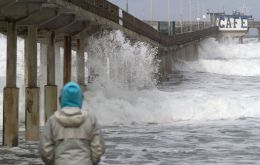
The US Oceanic and Atmospheric Administration (NOAA) announced Thursday the onset of “El Niño,” a weather phenomenon characterized by a warming of the surface of the equatorial eastern Pacific Ocean that occurs every 2 to 7 years, which can increase the risk of heavy rains and droughts in some parts of the world and lead to record temperatures.
-
Thursday, June 8th 2023 - 10:57 UTC
Deforestation in Amazon drops 31% interannually

According to Brazil's National Institute for Space Research (INPE), deforestation fell 31% in the Legal Amazon, from January to May 2023, compared to the same period last year, Agencia Brasil reported.
-
Wednesday, June 7th 2023 - 09:55 UTC
Panama Canal water level suffering from climate change

Since the Panama Canal connected the Atlantic Ocean to the Pacific in the early 20th century, it changes forever the history of global shipping. Before the canal was completed, ships had to go around the southern tip of South America, close to the Falklands coal fueling deposits, and a much longer and more dangerous route.
-
Wednesday, June 7th 2023 - 09:44 UTC
Arctic Ocean may be ice-free during the summer from 2030 onwards
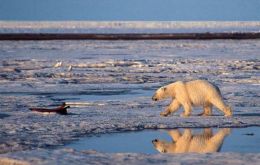
According to a recent study published in the journal Nature Communications, the Arctic Ocean may be ice-free during the summer from 2030 onwards regardless of the level of greenhouse gas emissions.
-
Monday, June 5th 2023 - 13:11 UTC
EU farmers refuse to accept plans to restore drained peat-lands, taken over by agriculture
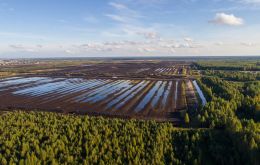
European Union farmers and conservative lawmakers are up in arms against landmark nature legislation meant to bolster the bloc's green transition and prevent vital ecosystems and species from being wiped out due to climate change.
-
Friday, June 2nd 2023 - 08:45 UTC
S. Georgia Marine Protected Area 5-Year Review Science Symposium
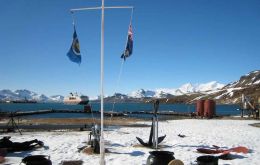
The Government of South Georgia and South Sandwich Islands, (GSGSSI) are pleased to announce that they will be holding a 2-day Science Symposium on the 13th and 14th June 2023 as part of the 5-year review of our Marine Protected Area.
-
Wednesday, May 31st 2023 - 18:28 UTC
Falkland Islands Government publishes Budget for 2023/24
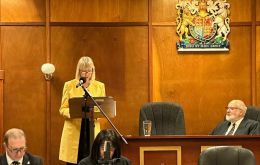
On 31st May, the Governor of the Falkland Islands made her annual address, state of the Nation, to the Legislative Assembly. In her speech, Alison Blake CMG reviewed last year's challenges and highlights, set out the government's and public service priorities for the year ahead, and paid tribute to the economy.
-
Wednesday, May 31st 2023 - 11:27 UTC
Magallanes Region to the rescue of farmers given the persistent drought
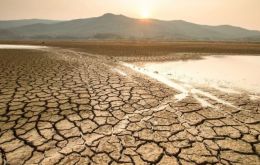
Systems to collect and accumulate water, plus troughs, were some of the implements that were distributed among farmers in the Magallanes Region, extreme south of Chile, to combat the hydric scarcity which affects the whole region.
-
Wednesday, May 31st 2023 - 10:31 UTC
Brazilian banks will deny credit to meatpackers that buy cattle from deforested areas

International measures on illegal deforestation are beginning to put pressure on Brazil, where banks have agreed to deny credit to meat packers that purchase cattle from such areas, according to the Brazilian Federation of Banks (Febraban).
-
Monday, May 29th 2023 - 20:20 UTC
For the first time, global investment in solar power overtakes investment in fossil fuels, IEA report

Global investment in solar power is expected to overtake investment in oil production for the first time ever this year, the International Energy Agency (IEA) said. The IEA projects investment in solar power to hit US$ 380 billion in 2023, compared to investments in oil exploration and extraction at US$ 370 billion.
